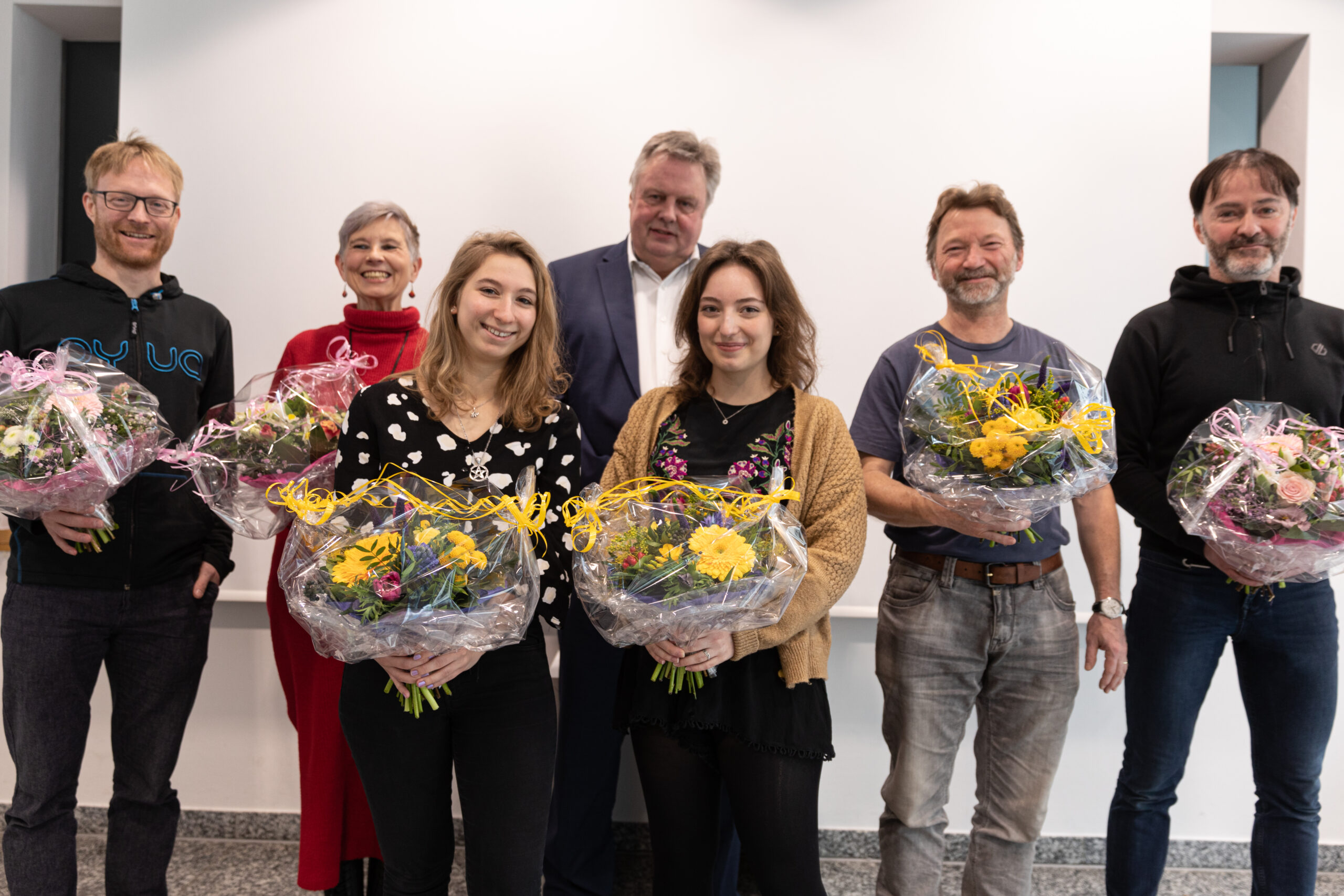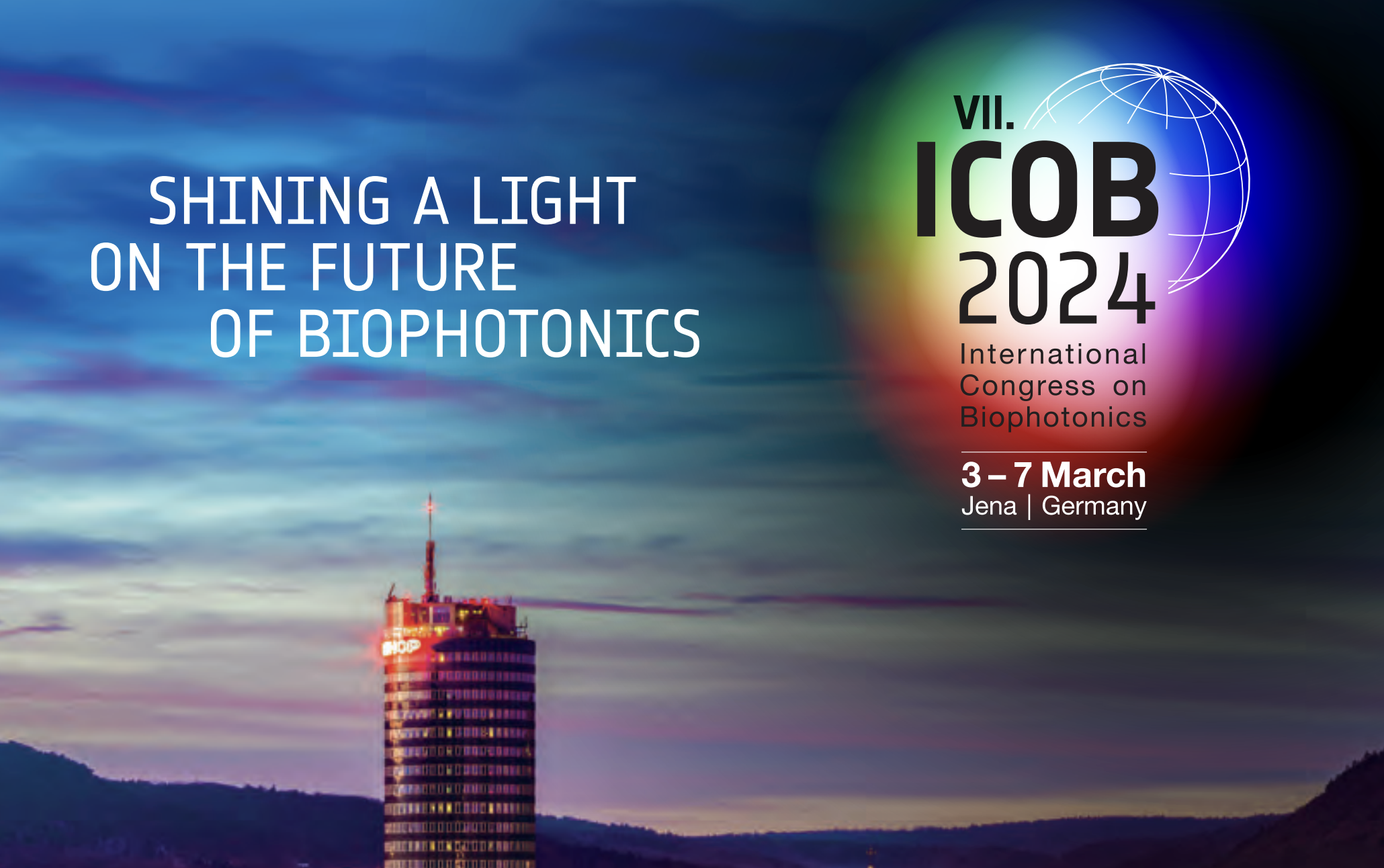Training successfully completed: Leibniz IPHT takes on two physics lab assistants

The Leibniz Institute of Photonic Technology (Leibniz IPHT) celebrates the graduation of its trainees: Tina Keilholtz and Victoria Bohn have passed their exams as physics lab assistants with flying colors and will be taken on as permanent employees. In the future, the graduates will be employed in the Competence Center for Micro- and Nanotechnologies at the institute, where they will assist in photolithography and sensor production in the clean room.
Three and a half years ago, they signed their training contracts and have now successfully passed the physics lab technician exam: Tina Keilholtz and Victoria Bohn look back on a very varied time. Already in their first year of training, the two got an exemplary overview of what is being worked on at the institute: They visited laboratories for microfluidics and the fiber drawing tower, produced nanoparticles or learned characterization methods for a wide variety of samples from the institute’s research departments. In addition to learning and working at Leibniz IPHT, the dual training included various theoretical and practical stations at the Jena Education Center and the vocational school in Selb, Franconia.
“The clean room left a particularly strong impression on me. How work is done there fascinated me from the start, so it was clear to me early on that I wanted to complete my training in the field of photolithography,” recalls Tina Keilholtz of the day she and Victoria Bohn held their training contracts in their hands. “The atmosphere among my colleagues during my apprenticeship was always very good. The protective clothing that has to be worn in the cleanroom is already a challenge at times. With gowns, hair hoods and mouth guards that leave only the eyes exposed, it is often not immediately clear who you are dealing with. But a glance at the shoes always reveals it; that’s where you’ll find the name,” she laughs.
Victoria Bohn still sometimes thinks about how new and big everything seemed at the beginning and how warm the welcome was at the institute. “We were able to get to know a different department almost every week and were welcomed everywhere with open arms. The colleagues were very friendly and made a lot of effort to integrate us well in every department.” She chose the training in sensor production, which she enjoyed a lot: “Quality assurance, i.e. building and measuring sensors, is a lot of fun for me. The very precise work suits me. Above all, I like the fact that you can see what you’ve done at the end. When sensors I’ve worked on are then installed in ventilators that can save people’s lives, it’s a great feeling.”
Not long after the training began in August 2019, the Corona pandemic began, a time full of challenges: “The school was closed and we had to learn a lot of the subject matter ourselves. We were also out of contact with the class. One bright spot was that we supported each other well and the teachers also helped where they could,” recounts Victoria Bohn. “Working in the clean room was also challenging, as very few people could work in a room at the same time. It wasn’t always easy, but we took it with humor,” Tina Keilholtz looks back.
Highlights and milestones
Overall, it was an exciting journey with many highlights at the institute, Victoria Bohn and Tina Keilholtz agree. “In all departments, colleagues took a lot of time to give us an insight into their work,” Tina Keilholtz is pleased to say. “By getting to know so many colleagues during our apprenticeship, the 30th anniversary summer party last year was also very special.”
The final milestone of their apprenticeship was the practical exam. For two days, the trainees had to let three examiners look over their shoulders as they worked, while they performed each of their movements with high concentration and explained them at the same time. Immediately afterwards, they had to prepare a protocol and give a presentation to a panel of nine people. “That took some nerves and energy,” smiles Victoria Bohn. “In the end, we both mastered the practical exam really well, and we can be really proud of that. Now we finally have our certificate of proficiency in our hands and are looking forward to starting our professional life at Leibniz IPHT. We are very grateful to the institute for this opportunity.”
Leibniz IPHT is a modern, internationally oriented research institute offering an interdisciplinary working environment and thorough and comprehensive personal training. The institute has a large number of physics, chemistry and biology laboratories of the highest standard as well as state-of-the-art fiber drawing and clean room facilities. As a training organization, Leibniz IPHT offers vocational training in various disciplines such as physics, chemistry, microtechnology or in the commercial field.
Current offers can be found in the job portal.
In the picture:
The newly acquired physics lab assistants Victoria Bohn and Tina Keilholtz with Kay Dietrich (Head of IR Sensor Production), Ute Hoffmann (Coordinator of Dual Vocational Training), Frank Sondermann (Administrative Director), Uwe Hübner (Head of the Competence Center for Micro- and Nanotechnologies) and Jan Dellith (Head of Microstructure Analysis), from left to right.
Contact
Related News
Third party cookies & scripts
This site uses cookies. For optimal performance, smooth social media and promotional use, it is recommended that you agree to third party cookies and scripts. This may involve sharing information about your use of the third-party social media, advertising and analytics website.
For more information, see privacy policy and imprint.
Which cookies & scripts and the associated processing of your personal data do you agree with?
You can change your preferences anytime by visiting privacy policy.


